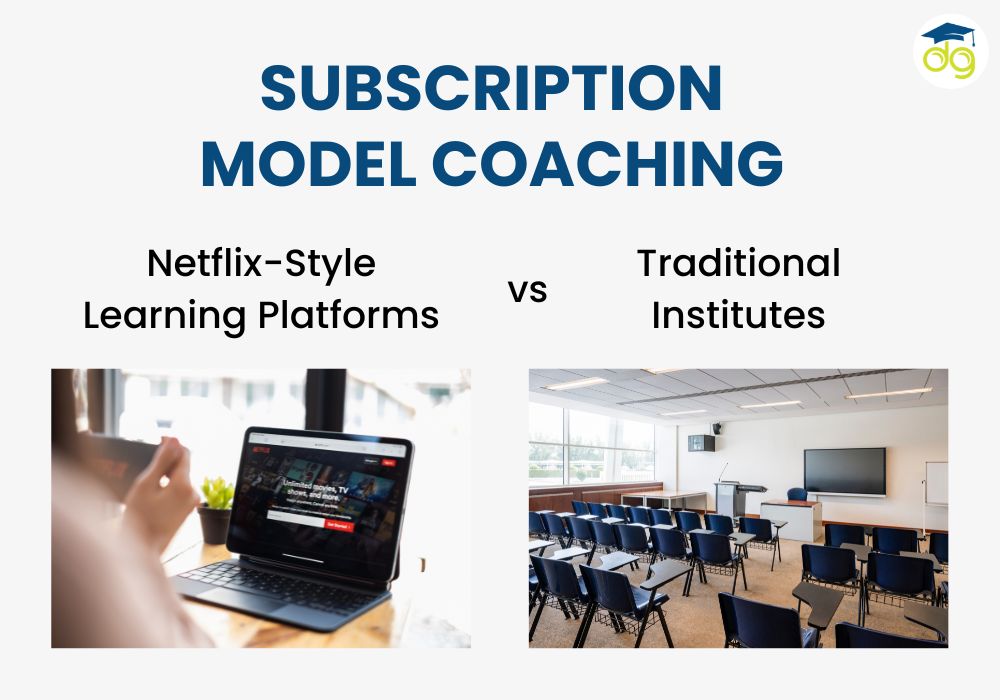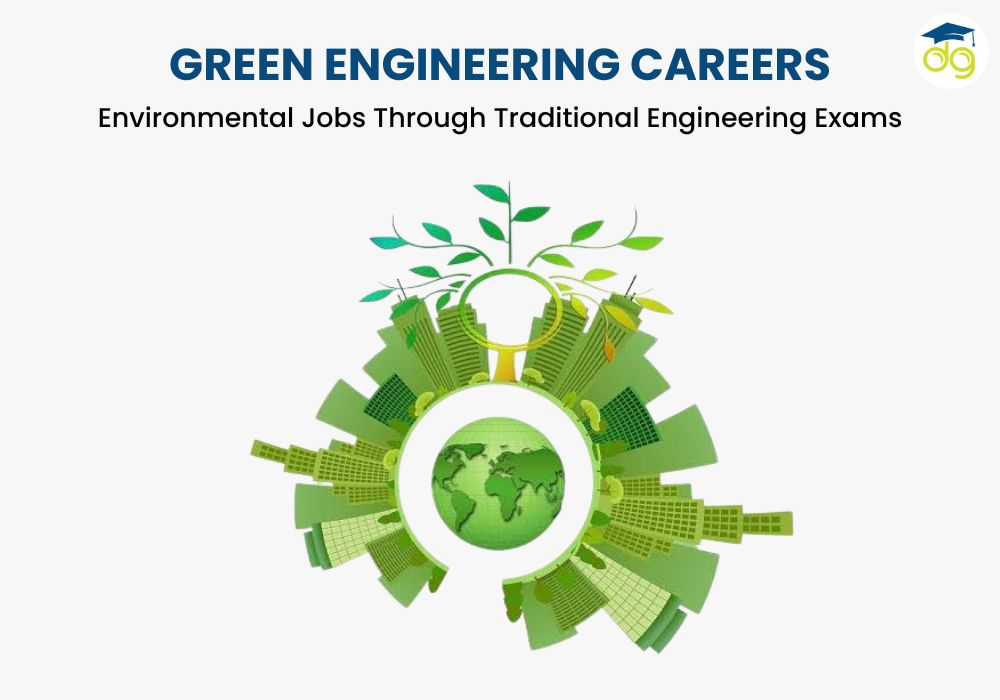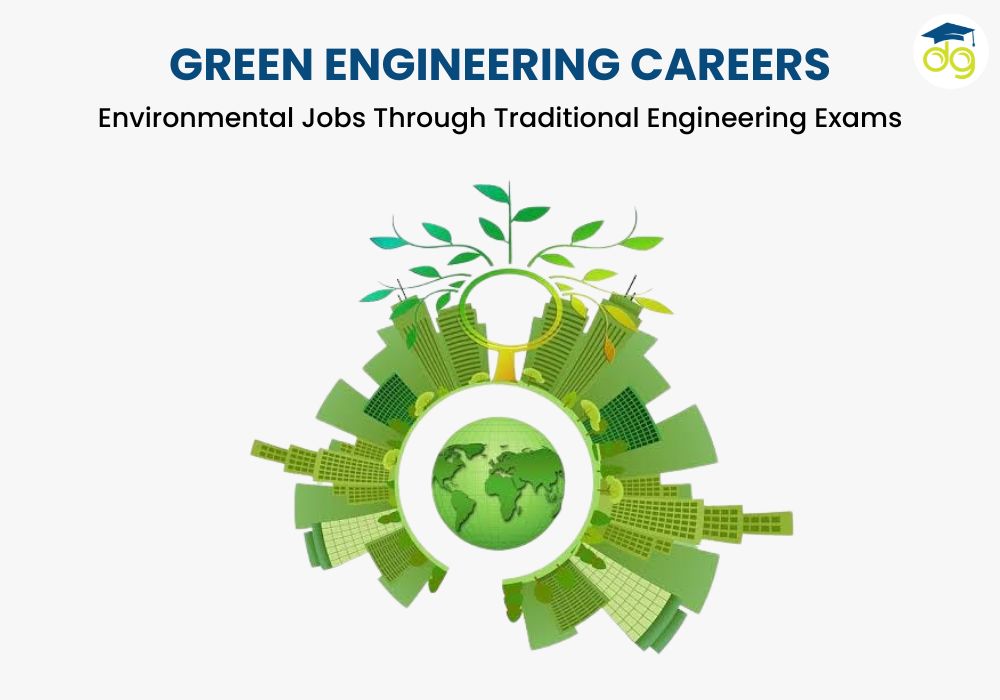Green Engineering Careers: Sustainable Jobs Through GATE, ESE & PSUs
Explore Environmental Engineering Jobs and Career Paths in 2025–26
The Rise of Green Engineering Careers
The 21st century has seen an amazing shift in the way engineers are viewed by the public. It is no longer restricted to building or manufacturing; engineers are leading the way in solving problems with the environment. The evolution of engineering has led to green engineering careers as a profession in which sustainability and innovation meet.
Green engineering concentrates on creating infrastructures, technologies, and systems to reduce the environmental impact. From green energy solutions to software that is eco-friendly, Engineers are using their expertise in technology to create an eco-friendly, smarter planet.
The thing that makes this development interesting is that young people have the ability to enter environmental jobs through traditional engineering exams like GATE and ESE, or PSU hiring. It's design green facilities, maximizing the management of waste, or coding intelligent power systems for energy, these professions provide both career growth and an impact that lasts for a long time on our planet.
Understanding Green Engineering Careers
The essence of green engineering is a way to incorporate environmental considerations into all stages of creation, development, and deployment. Its goal is to minimize environmental pollution, preserve natural resources, and ensure that the technology is sustainable over time.
While environmental engineering is the most direct path, other engineering branches--civil, mechanical, electrical, chemical, and even software--now offer opportunities to work in sustainability-driven roles.
A green engineer may:
- Design water recycling systems in urban developments.
- Make sure that manufacturing is optimized to minimize carbon emissions.
- Create renewable energy grids and IoT-based monitoring systems.
- Develop AI tools that track deforestation or waste output.
The job requires technical knowledge for green engineering positions and creative skills for sustainable engineering solutions. Engineers need to think outside of their technical outputs and think about the impact on the environment of each initiative they take on.
Major Career Paths in Engineering Leading to Sustainability
The path to sustainability can be traced across all branches of engineering. Students studying for career paths in engineering may align their field of study with the green targets.
1. Civil Engineering
Civil engineers are now focusing on the sustainable construction process, waste management, and green urban planning. They focus on resilient infrastructure for floods, eco-friendly buildings, sustainable construction, and the use of renewable materials.
2. Mechanical Engineering
Mechanical engineers are involved in energy-efficient equipment, electric vehicle design, and renewable energy technologies. They are innovators in solar panel manufacturing and wind turbine systems.
3. Electrical Engineering
This area is leading the way in the field of smart grids, energy distribution, and power storage solutions. Engineers can optimize the way energy is created, distributed, and used with the least loss.
4. Chemical Engineering
Chemical engineers create biodegradable substances, green fuels, and waste management processes. Their work helps reduce pollution and improve circular economic models.
5. Software & Data Science
Software developers and engineers currently play an important part in the sustainability analysis. With machine learning technology, they track the quality of air, improve the use of energy, and also manage the environmental data.
In all areas, analytical skills for engineering jobs and problem-solving skills for technical careers continue to be essential for successful careers. Engineers who can link sustainable development with technological innovative thinking are shaping the future.
How to Get Environmental Jobs Through Engineering Exams
A lot of aspirants ask: "How to get environmental jobs through engineering exams?" The best fact is that the traditional tests, such as GATE, ESE, SSC JE, and PSU recruitments, are now allowing for positions in the environmental field.
Exam | Department/Organization | Green Career Role | Example |
| GATE | NHAI, CPWD | Civil & Environmental Engineer | Wastewater design, eco-bridges |
| ESE | Ministry of Water Resources | Environmental Analyst | Sustainable irrigation projects |
| PSU | ONGC, NTPC | Environmental Officer | Green Project Management |
| SSC JE | Central Water Commission | Junior Engineer (Environment) | Restoration of rivers, water audits |
Once they pass these tests After passing these exams, applicants can join areas that deal with sustainable energy, resource conservation, and urban development.
Even private businesses are increasingly seeking certifications and test-based technical expertise when they hire green engineers.
Those who are looking for career development in engineering, the combination of an excellent technical education with an awareness of sustainability can create the potential for long-term growth.
Jobs for Graduates in Environmental and Civil Engineering
Jobs for graduates in environmental and civil engineering are growing in both the private and public sectors. Since industries are adopting green-friendly mandates, there's an increasing demand for skilled engineers who are able to create, supervise, and control green infrastructure.
Top Entry-Level Job Roles
- Environmental Analyst - Evaluates industrial projects in terms of the environmental impact.
- Civil Engineer (Green Projects) - Designs eco-friendly infrastructure and urban systems.
- Water Resource Engineer - Develops solutions to conserve water and purification.
- Air Quality Engineer: Monitoring emissions and ensuring compliance with regulations.
Skill Requirements
Employers want graduates with a combination of analytic thinking, experience with environmental software (like AutoCAD and GIS), and knowledge of the policy framework.
Role | Average Annual Salary (INR) | Core Skill |
| Environmental Analyst | 4-6 LPA | Interpretation of data |
| Civil Engineer (Green Projects) | 5-7 LPA | Sustainable design |
| Water Resource Engineer | 6-8 LPA | Hydrology instruments |
| Air Quality Engineer | 4-6 LPA | Systems for regulating emissions |
These civil engineering positions and job opportunities in environmental engineering provide a solid foundation to further specialize.
Career Opportunities for Freshers in Green Engineering
Career opportunities for freshers in green engineering are growing because of global environmental targets and India's commitment to renewable energy sources.
Recent graduates may be a part of the green industry by:
- Campus Placements for renewable energy companies.
- Internships for environmental audit firms and NGOs.
- Apprenticeships are part of government initiatives such as the Smart Cities Mission.
A number of universities also provide post-doctoral research assistants in the sustainable development of materials and energy efficiency.
In order to stand out, young people must be able to demonstrate creative skills for sustainable engineering solutions and strong teamwork skills.
Obtaining certifications such as LEED, IGBC, or Autodesk Green Building Studio is a huge benefit for those who are just beginning their careers.
Manager Roles in Environmental Engineering Projects
When engineers are able to gain experience in the field, they can then move into manager roles in environmental engineering projects. They combine technical supervision and leadership.
Common Roles Include:
- Environmental Project Manager
- Energy Systems Consultant
- Sustainability Compliance Officer
- Green Construction Manager
These managers supervise budgets, teams, and the implementation of eco-friendly methods. They work with the design team, customers, as well as policymakers to make sure that they are in compliance with the green standards.
They are often found in those in the IT and environmental sectors, providing career growth prospects in IT and environmental sectors by using projects that are managed using data and reporting instruments.
How Software Development Engineers Contribute to Green Engineering
In the same way that civil and environmental engineers manage the physical sustainability of their projects, software development engineers lead digital transformation to eco-friendly initiatives.
Key Contributions:
- AI-powered Energy Efficiency: Designing systems that can forecast power demand and decrease consumption.
- Smart Irrigation Systems: Making use of IoT sensors to measure soil moisture and improve the use of water.
- Green Coding Methods: Designing effective software that decreases the carbon emissions of data centers.
- Environmental Data Science: Making predictive models for the control of pollution and forecasting climate.
These data science roles in environmental projects include coding as well as environmental consciousness. Therefore, it is not surprising that IT professionals have a significant role to play in aiding in the achievement of global sustainability targets.
Skills Needed for Green Engineering Careers
No matter if a prospective candidate is a civil engineer or a data analyst, certain abilities are necessary to be successful in this field.
1. Technical Skills
- Expertise in CAD, GIS, and simulation instruments.
- Knowledge of the renewable energy system.
- Data analysis as well as IoT integration to monitor green.
2. Analytical and Problem-Solving Skills
Employers seek out people who have the ability to analyze for engineering positions and problem-solving skills for technical fields. Engineers must look at data in a different way and discover creative ways to reduce environmental impacts.
3. Creative and Interdisciplinary Thinking
Green engineers work across disciplines--combining civil, IT, and management principles to achieve sustainability.
4. Communication and Compliance Knowledge
The understanding of the importance of green policies, safety guidelines as well as reporting requirements is crucial for a successful execution as well as documenting.
How to Pursue a Career in Environmental Civil Engineering
Those who want to know whether to pursue an engineering for the environment will be able to follow the following course:
- Education: Start with a B.Tech in Civil or Environmental Engineering.
- Examination: Preparation for the GATE exam, ESE, and state-level tests for recruitment in the technical field.
- Certificates: Gain expertise in environmentally sustainable design and software and environmental laws.
- Experiential: Work on internships or other projects that are related to sustainable buildings, waste management, or green building.
- Networking: Connect with professional organisations such as IEI and IGBC for mentoring and exposure.
Government departments and private firms require engineers to use traditional civil practices to develop more sustainable solutions and bridge the gap between the expansion of infrastructure and the environment.
Career Growth Prospects in Green Engineering
The trajectory of career development for green engineering can be satisfying and secure. Since industries have aligned themselves with global sustainability standards, engineers are offered positions that blend innovation with long-term impact.
From basic analysts to project managers, there are opportunities within public sector companies and private firms, research institutes, and international companies.
The future of the career path in engineering involves adapting old techniques to meet the demands of today. Every bridge circuit, code, or even circuit can contribute to the balance of our environment.
Conclusion
Careers in green engineering are changing the meaning of being an engineer in the 21st Century. The roles do not just promise career success, but also have the larger goal of ensuring a greener and sustainable future.
Through the traditional engineering tests, candidates can get jobs that provide real ecological impact. If the role is a civil engineer constructing green structures or a software engineer creating a smart grid, each contribution is important.
Learn the ways your journey in engineering can result in positive green possibilities.
Visit SkoodosBridge for more information about the best institutions, education programs, and certificates that can prepare you for green careers in engineering.
FAQs
1. What are the best career options in green engineering?
Environmental engineering, sustainable energy engineer, green construction manager, and sustainability consultant are among the most sought-after jobs.
2. Which engineering roles focus on sustainability?
Mechanical, civil, and software engineers who focus on the environment, energy management, and smart systems.
3. How can students get green jobs after exams like GATE or ESE?
By applying to departments for environmental initiatives in PSUs, or by conducting green infrastructure initiatives.
4. Do software engineers have green career paths?
Yes, Software developers are involved in AI technology, IoT devices, and code solutions to improve energy efficiency.
5. What skills help in green engineering careers?
Analysis, technical skills in environmental consciousness, and innovative problem-solving abilities.
Categories
Archives
- October 202511
- September 202520
- August 202522
- July 202524
- June 202524
- May 202526
- April 202530
- March 202523
- February 202513
- January 202523
- December 202429
- November 20246
- September 20245
- August 202422
- July 202415
- May 20249
- June 202424
Similar Posts

Subscription Model Coaching vs Traditional Institutes: Netflix-Style Learning
by Skoodos Bridge

Green Engineering Careers: Sustainable Jobs Through GATE, ESE & PSUs
by Skoodos Bridge

Coaching Institute Mergers in India: Impact on Students & Education Quality
by Skoodos Bridge

Pomodoro 2.0: AI-Optimized Study Intervals for Better Focus
by Skoodos Bridge

Micro-Meditation Techniques for Exam Stress Relief in 3 Minutes
by Skoodos Bridge

AI-Powered Mock Tests Transform NEET & JEE Preparation in 2025
by Skoodos Bridge

How to Build a Career Abroad After Graduation: Step-by-Step Guide 2025
by Skoodos Bridge

Top 10 Student-Friendly Cities Abroad in 2025 for Indian Students
by Skoodos Bridge

Daily Habits of Toppers: Study, Lifestyle, and Exam Strategies
by Skoodos Bridge


Leave a Comment